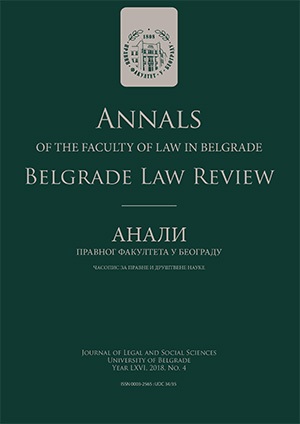The Capacity of the Administrative Court in Serbia to Deal with Asylum Cases
The Capacity of the Administrative Court in Serbia to Deal with Asylum Cases
Author(s): Marko Davinić, Ivana KrstićSubject(s): Human Rights and Humanitarian Law
Published by: Правни факултет Универзитета у Београду
Keywords: Administrative Court; Republic of Serbia; Asylum; Safe third country; European Convention on Human Rights
Summary/Abstract: This paper explores the capacity of the Administrative Court in Serbia to adjudicate asylum cases, which have been in its jurisdiction since the Court’s establishment in 2010. The analysis of its asylum case law is divided into three phases, based on both temporal and substantive criteria. It demonstrates that the best period in handling asylum cases was 2014–2015, during which judgments of the Court significantly improved the decision-making of administrative authorities. Nevertheless, this research has identified several issues that have negatively influenced the work of the Administrative Court in the field of asylum law: the Court’s excessive inherited caseload, the influx of new claims, a small number of asylum related cases, the insufficient number of judges, the extremely broad jurisdiction of the Court, as well as a lack of specialized panels within the Court. The last problem is identified as the major one and the authors propose concrete steps that should be undertaken in order to increase the capacity of the Administrative Court to deal with asylum cases. Lessons learned from Serbia, as a country in the middle of the Western Balkan migration route, can be useful for all other countries along it.
Journal: Анали Правног факултета у Београду
- Issue Year: 66/2018
- Issue No: 4
- Page Range: 56-83
- Page Count: 18
- Language: English

